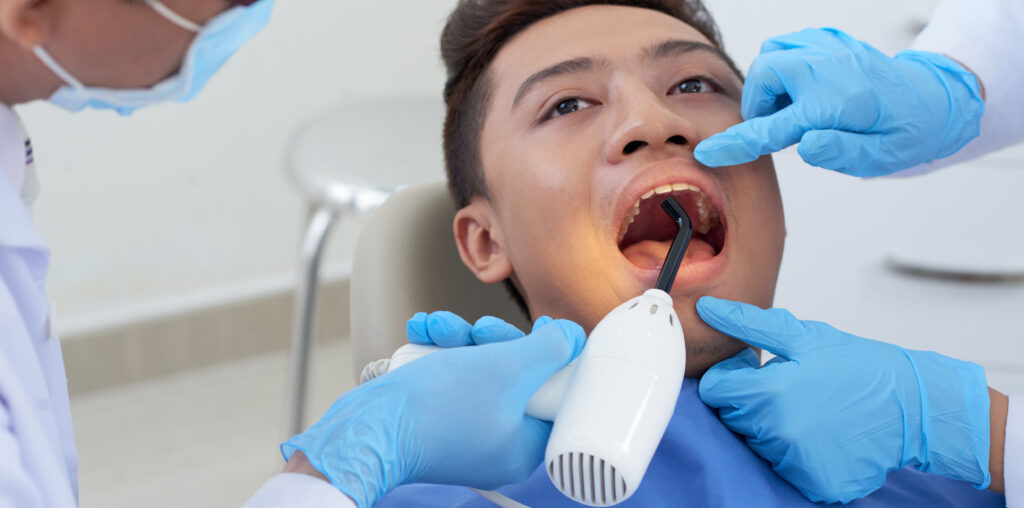1. Introduction to Wisdom Teeth
A dentist in Vaughan often recommends wisdom teeth extraction to prevent pain, infection, and misalignment. Wisdom teeth, also known as third molars, typically emerge between the ages of 17 and 25. While some people experience no issues, many find their wisdom teeth problematic due to lack of space in the mouth. This can lead to impaction, crowding, gum infections, and even cyst formation.
If wisdom teeth don’t have enough room to erupt properly, they can grow at an angle, press against adjacent teeth, or remain trapped under the gums. In such cases, removing them is essential to maintain good oral health and prevent future complications.
2. Reasons for Wisdom Teeth Extraction
Crowding and Misalignment
Most people’s mouths don’t have enough space to accommodate wisdom teeth. When they try to emerge, they may push against neighboring teeth, causing crowding and misalignment. This can disrupt orthodontic work and lead to bite problems.
Impacted Wisdom Teeth
Wisdom teeth that don’t fully emerge or grow in sideways are known as impacted teeth. They can press against other molars, causing pain, swelling, and potential damage.
Infection and Gum Disease
Partially erupted wisdom teeth create pockets where food and bacteria get trapped, increasing the risk of infection, gum disease, and decay. This can lead to swollen, painful gums and difficulty in cleaning the affected area.
Cysts and Jaw Damage
In some cases, impacted wisdom teeth can develop cysts, which are fluid-filled sacs that may damage the jawbone and nearby teeth. Left untreated, these cysts can lead to more serious oral health issues requiring extensive treatment.
3. Preparing for Wisdom Teeth Extraction
Before the extraction, your dentist in Vaughan will conduct an oral examination and take X-rays to determine the position of your wisdom teeth. This helps assess whether they need to be removed and the best approach for extraction.
Pre-Procedure Instructions
- Avoid eating or drinking for several hours before surgery if general anesthesia is used.
- Discuss any medical conditions or medications with your dentist.
- Arrange for someone to drive you home after the procedure, as sedation may affect coordination.
4. The Wisdom Teeth Extraction Procedure
Anesthesia Options
Depending on the complexity of the extraction, your dentist may use:
- Local anesthesia – Numbs the extraction site while you remain awake.
- Sedation anesthesia – Helps you relax while numbing the area.
- General anesthesia – Used for more complex cases, keeping you fully unconscious.
Surgical Techniques
If the wisdom teeth are impacted, the dentist may need to make a small incision in the gums to remove them. In some cases, the tooth may be sectioned into smaller pieces for easier removal. Once the tooth is extracted, the area is cleaned, and stitches may be placed if necessary.
5. Recovery and Aftercare
Following proper post-operative care is essential for a smooth recovery. Here’s what you can expect after your wisdom teeth extraction:
Managing Pain and Swelling
- Apply ice packs to reduce swelling.
- Take prescribed or over-the-counter pain relievers as directed.
- Keep your head elevated to minimize swelling.
Dietary Recommendations
- Stick to soft foods like yogurt, mashed potatoes, and soup.
- Avoid crunchy, spicy, or hot foods that may irritate the extraction site.
- Do not use straws, as the suction can dislodge the blood clot and cause dry socket, a painful condition.
Oral Hygiene Tips
- Rinse gently with warm salt water after 24 hours to keep the area clean.
- Avoid brushing directly over the extraction site for the first few days.
- Do not smoke or drink alcohol, as they can slow the healing process.
6. Potential Complications and How to Manage Them
Dry Socket
This occurs when the blood clot protecting the extraction site becomes dislodged, exposing the bone and nerves. Symptoms include severe pain and bad breath. To reduce the risk, avoid spitting, drinking from straws, or smoking. If you suspect dry socket, visit your dentist in Vaughan for treatment.
Infection
Signs of infection include persistent pain, swelling, fever, and pus near the extraction site. If you notice these symptoms, contact your dentist immediately.
Excessive Bleeding
Minor bleeding is normal for the first 24 hours. However, if bleeding continues, bite down on gauze and apply light pressure. Avoid vigorous rinsing or spitting. If bleeding persists, seek professional care.
7. Importance of Wisdom Teeth Extraction
Removing problematic wisdom teeth helps prevent long-term dental issues, including infections, crowding, and cyst formation. Timely extraction can also protect adjacent teeth and improve overall oral health.
If you’re experiencing pain, swelling, or difficulty chewing, consult a dentist near you to assess whether wisdom teeth removal is necessary. Taking proactive steps can help maintain a healthy, pain-free smile.



